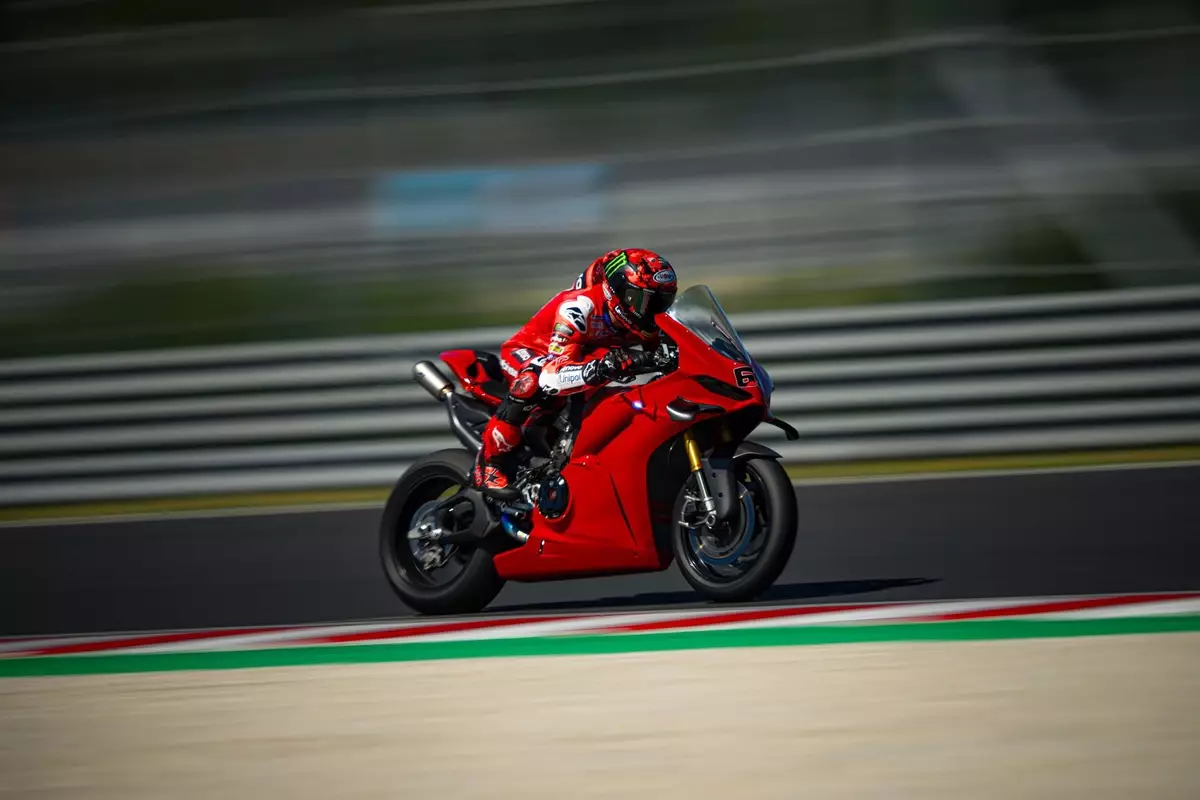Ducati’s recent move to send seven of its top riders to Hungary for a private session at the newly introduced Balaton Park circuit exemplifies a meticulous and forward-thinking strategy. Rather than relying solely on data and simulations, the Italian powerhouse has committed substantial resources to ensure its riders are intimately familiar with the track before the competition, revealing a nuanced understanding of the sport’s complexities. This approach underscores Ducati’s aggressive pursuit of victory, not just in the upcoming Hungarian GP but across all championship categories.
In the high-stakes arena of MotoGP, where milliseconds and subtle nuances in riding style can determine a race’s outcome, Ducati’s decision signals an intent to gain a competitive edge through tangible experience. By coordinating such an extensive testing session on a track that has yet to feature on the world’s premier motorcycling calendar, Ducati demonstrates a belief that thorough preparation is a decisive factor. Their focus on mastery over the circuit’s quirks reflects an appreciation for the importance of terrain-specific adaptation—a trait that separates champions from hopefuls.
Precision Engineering Meets Practicality
The choice of equipment—a fleet of Panigale V4 S Pro bikes—underscores Ducati’s commitment to leveraging its technical prowess in road-legal machines that closely mirror the performance and handling characteristics of its MotoGP prototypes. These bikes, derived from the WorldSBK model, are the perfect platforms for team riders to familiarize themselves with the circuit’s nuances, especially the tight chicanes and stop-and-go segments that define Balaton Park.
Remarkably, Ducati’s technicians enhanced these motorcycles with carefully selected modifications—upgraded brakes, tailored suspension settings—within the confines of regulations that prohibit the use of racing components in private tests. This indicates a sophisticated understanding of regulatory loopholes and a strategic use of available resources to optimize performance gains. It’s a delicate balancing act—pushing technical boundaries without crossing lines—highlighting Ducati’s ingenuity and attention to detail.
Their investment in such technical refinement also signifies a broader philosophy: controlling the variables as much as possible before the actual race. This focus on mechanical consistency and rider familiarity can translate directly into improved race pace, better race strategy, and ultimately, higher chances of securing valuable championship points.
The Psychological Edge of Preparation
Beyond the mechanics and the equipment, Ducati’s camp is acutely aware that confidence stems from familiarity. The fact that both seasoned champions and emerging talents—like Pecco Bagnaia and Marc Marquez—spent a dynamic day on the track hints at a collective effort to cultivate a unified mental readiness. For riders, the mental challenge of adapting to a new circuit can be as daunting as the physical demands. Ducati’s proactive approach seeks to eliminate uncertainties, fostering a psychological advantage that’s difficult to quantify but profoundly impactful.
Their enthusiasm and positive impressions, expressed openly by Bagnaia and Marquez, reveal a team actively building belief—an intangible but potent force that can differentiate winners in high-pressure scenarios. The statement from Marquez about “finding rhythm” and “enjoying speed” encapsulates how mental comfort can enhance physical performance, allowing riders to push just a bit harder, a bit smarter, on race day.
Does this strategy guarantee victory? Not necessarily, but it undeniably tilts the odds in Ducati’s favor. In racing, where every detail counts, these preparatory efforts could be the margin between the podium and disappointment.
Rethinking Preparation in Modern MotoGP
Ducati’s thorough testing at Balaton Park signals a potential shift in how top teams approach race preparation. Historically, teams relied heavily on simulations and limited track days, often awaiting the official practice sessions. Ducati’s bold move of creating a private testing environment near a race venue indicates a new paradigm—one where teams take matters into their own hands, leveraging technical resources and rider expertise well in advance.
This proactive stance can redefine competitive dynamics, pressuring rivals to adopt more aggressive and innovative preparation tactics. It highlights a broader trend: in a sport where marginal gains are fiercely contested, controlling the narrative in the lead-up to a race can yield disproportionate dividends.
Furthermore, Ducati’s effort demonstrates a deep understanding that success in MotoGP involves more than just raw speed—it’s about mastering the intangible elements: track familiarity, rider confidence, and technical subtlety. Their meticulous preparation suggests an appreciation that victory is often decided in the minds of the riders long before the flag drops.
Ducati’s strategic deployment of resources at Balaton Park exemplifies a philosophy that champions preparation, technical mastery, and mental fortitude. By turning these elements into their competitive edge, they are not just racing for the upcoming Hungarian GP, but for sustained dominance in the sport. Their actions provoke a question to all teams: are you prepared to push beyond traditional boundaries and truly control your destiny?

